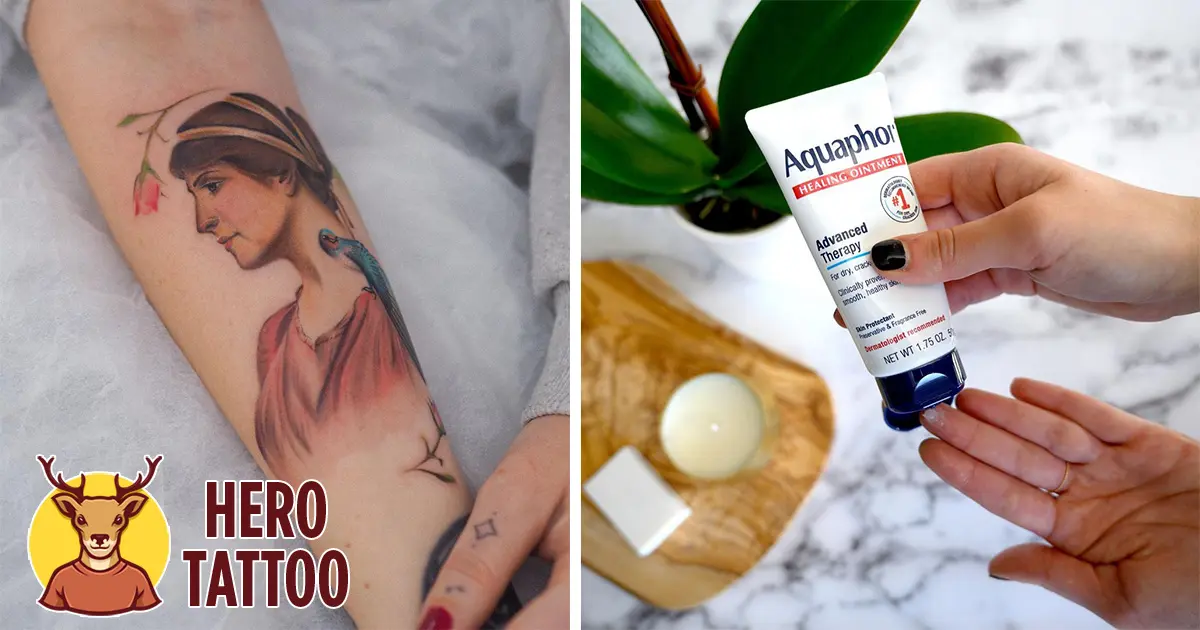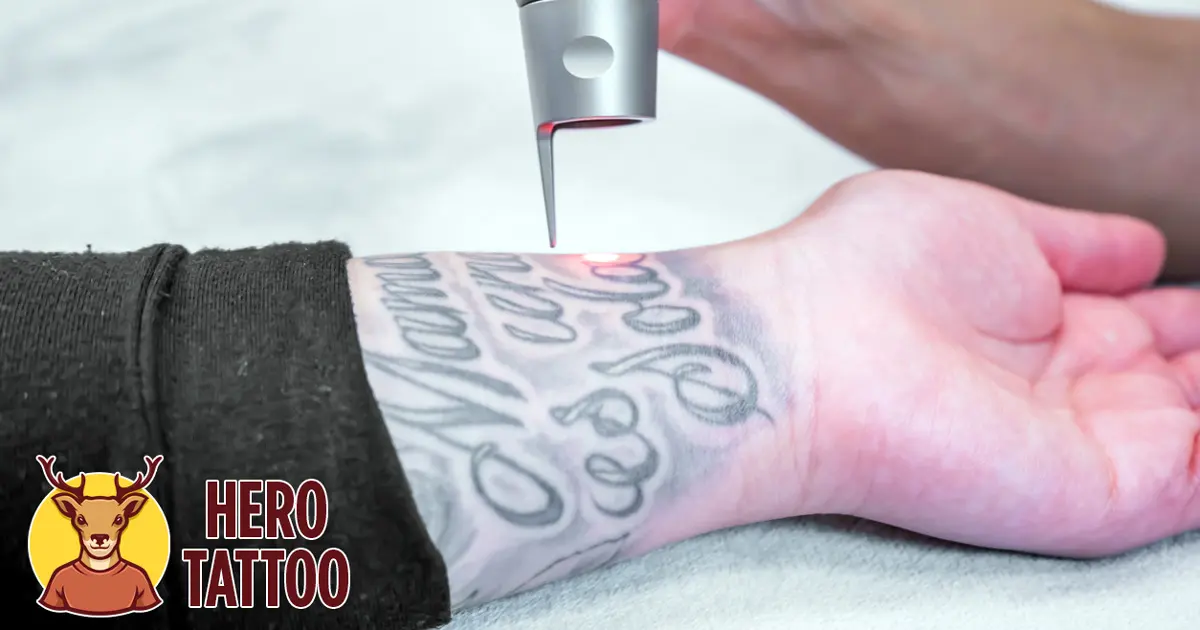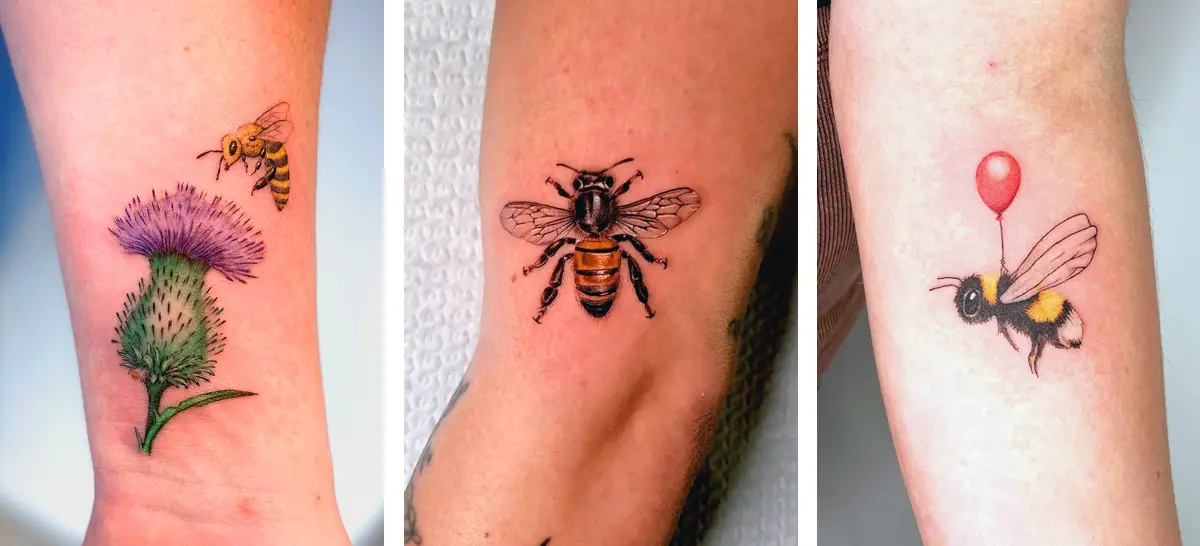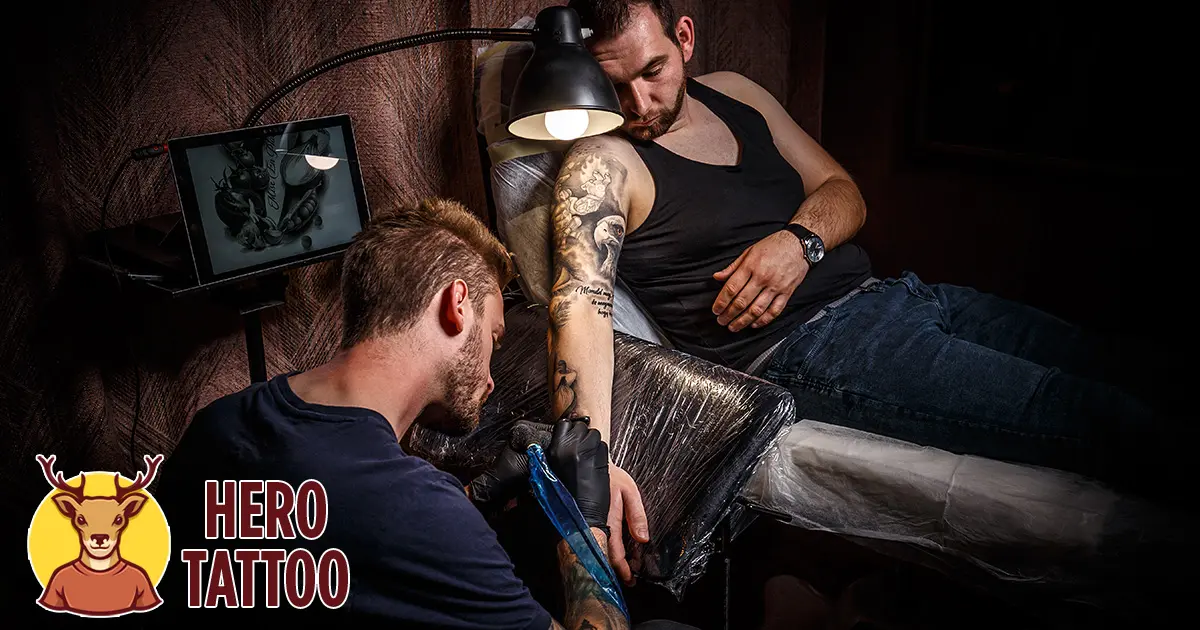With so many tattoo aftercare tips available, it’s hard to know which product is best for my tattoo in the midst of the confusion.
Aquaphor is one of the tattoo aftercare solutions highly suggested by tattoo artists. Everyone already has this thing stashed away someplace in their home, just in case they ever find themselves in a situation where they might need it. It looks that Aquaphor is a multi-purpose solution that may be used for various purposes such as cutting, wound healing, and irritation alleviation.
Is Aquaphor, on the other hand, a decent tattoo aftercare product? Aquaphor is widespread, and many people swear by it, but is there any scientific evidence that it is effective in treating tattoo wounds?
Following that, we’ll look into this product further to determine if it may aid in the healing of tattoos and how effective it is. In addition, we’ll take a closer look at the component list and discuss the primary advantages and disadvantages of putting Aquaphor on a tattoo, among other things.
So, without further ado, let’s get this show on the road.
Everything You Need to Know About Aquaphor in One Place
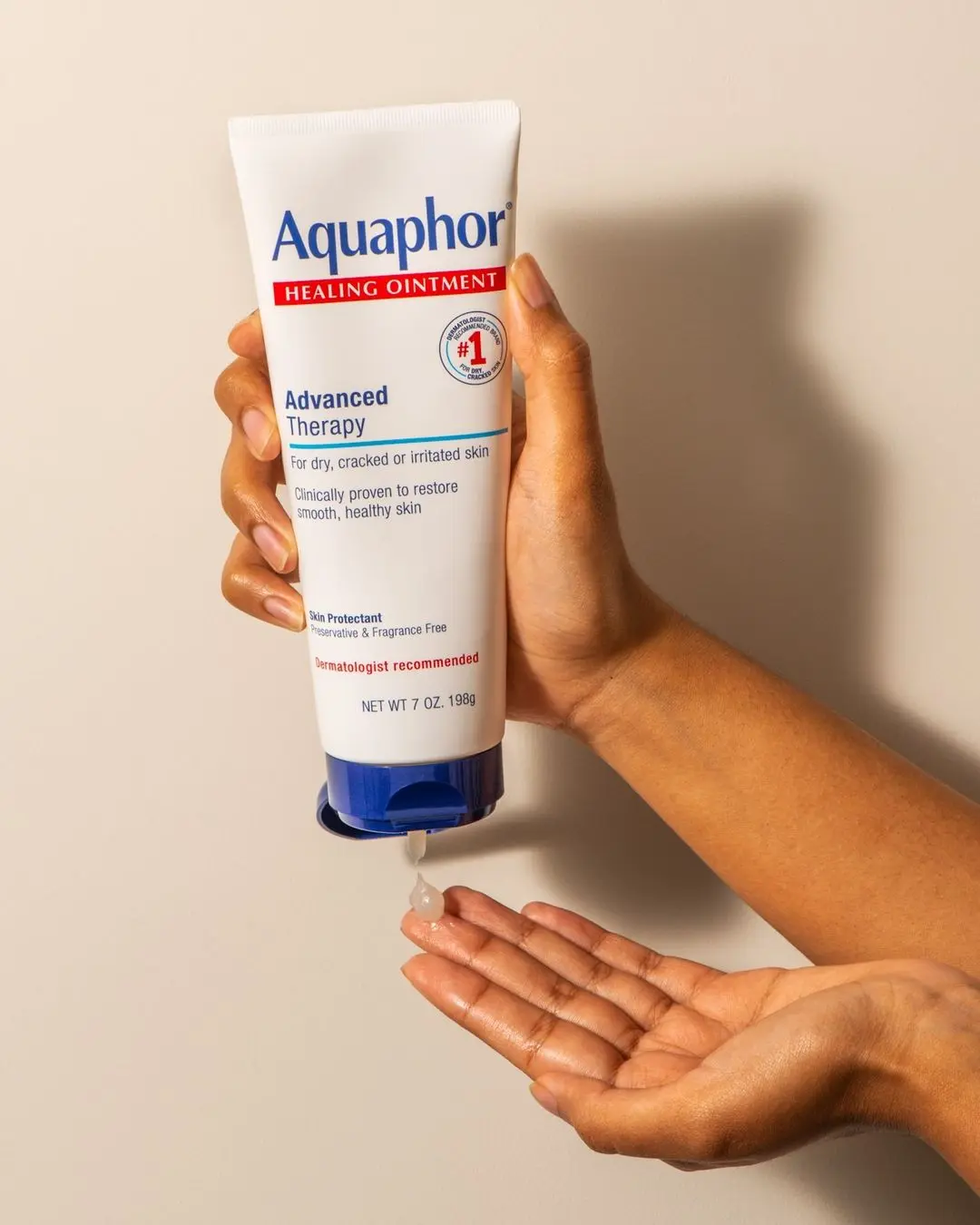
What Is Aquaphor and How Does It Work?
Aquaphor is a series of skincare products manufactured by the German company Beiersdorf AG, the parent company of other brands such as Labello, Eucerin, Nivea, and others. However, when we talk about Aquaphor for tattoos, we refer to the Aquaphor Healing Ointment, not the original Aquaphor.
According to reports, it is the number one dermatologist-recommended product for treating dry and cracked skin and wound care. The product is intended to assist in the creation of a semi-occlusive barrier on the skin, which will aid in the retention of moisture and the creation of a healing environment.
All Aquaphor products have been clinically proven to aid in the healing of dry and cracked skin, cracked heels, minor burns, cuts, and scrapes, as well as diaper rashes and other skin irritations.
What Ingredients Does Aquaphor Make Use Of?
Aquaphor makes use of the following ingredients:
The following substances are contained within the Aquaphor Healing Ointment:
- 41% of the total is petrolatum (petroleum jelly).
- Panthenol
- Glycerin
- Lanolin and Alcohol
These are the primary elements that contribute to this product’s soothing and nourishing properties. Because it includes petrolatum, many people identify Aquaphor with petroleum-based goods such as Vaseline and petroleum-based cosmetics. However, because Vaseline is 100 percent petroleum-based, these aren’t the same items as they seem.
Due to this chemical, many people are sceptical about whether Aquaphor is safe for tattoos, especially given how strongly opposed everyone is to using Vaseline on tattoos (including professional tattooists and medical professionals).
Bisabolol, a component derived from the chamomile plant, is one of the minor components of Aquaphor and is included in the list of minor ingredients. It is considered to have anti-inflammatory and calming properties, which help to ensure that the skin heals without becoming infected.
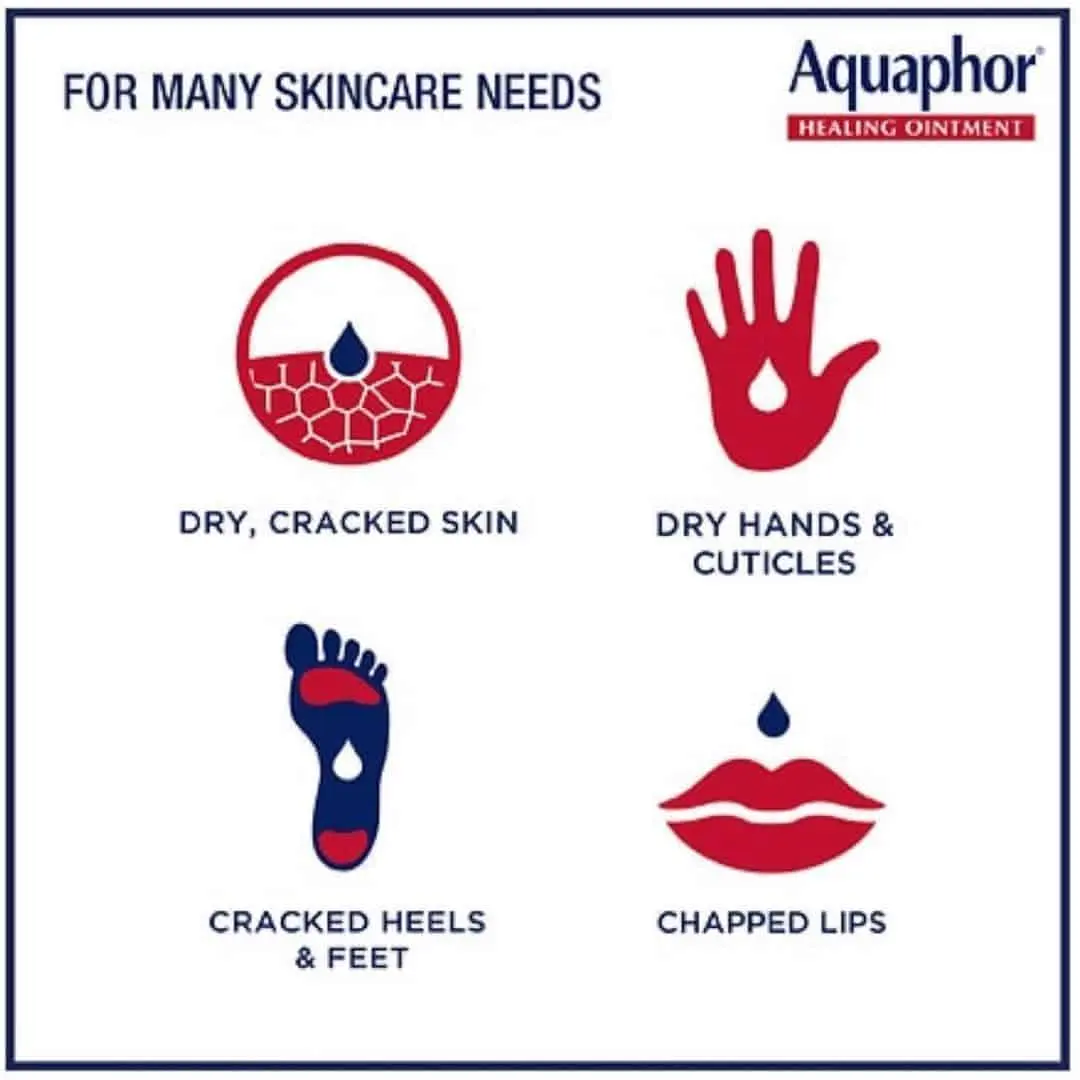
What is the mechanism of action of aquaphor?
Aquaphor is a product that operates straightforwardly.
- When you apply the ointment, it forms a protective barrier on the skin, which aids in the retention of moisture.
- Because it is semi-occlusive, it allows oxygen to enter the wound, which aids in the drying and healing.
- When applied to the skin, the ointment inhibits moisture loss. It helps to produce a therapeutic environment that is conducive to recovery.
Aquaphor makes use of petroleum jelly to produce a protective layer on the skin’s surface and keep moisture from escaping. However, because the product is not exclusively composed of petrolatum, it also has the additional benefit of soothing the skin, keeping it moisturized, and speeding up the healing process.
Aquaphor is one of the most versatile products available on the market due to its effects. You may get it at any local grocery store, pharmacy (over-the-counter and prescription), or medical supply store.
So, is Aquaphor a good aftercare product for tattoos?
Why It Might Be Beneficial
As previously said, Aquaphor is intended to aid in the healing of the skin as quickly and effectively as possible without causing any harm to the skin (resulting from injury or a wound). In addition to these features, this product has many other characteristics that may be beneficial in the event of tattoo healing:
- Infection caused by bacteria may be prevented by applying Aquaphor, which forms a protective barrier on the skin, preventing bacteria and other germs/pathogens from entering a fresh tattoo, which may otherwise result in infection. It is beneficial in the treatment of scabbing and itching.
- As the tattoo heals, scabs and crust will appear due to the growth of new skin layers beneath the tattooed area. A person may endure discomfort and increased itching around the tattoo due to this procedure. This means that you must avoid touching, peeling off, or scratching the tattoo. On the other hand, ointments such as Aquaphor may help decrease scabbing and give immediate relief. ///Because of the chemical in Aquaphor, it may aid in the healing of tattoos more quickly.
- Because the ointment preserves the tattoo and keeps it moist, the damaged region will naturally regenerate and heal more quickly due to the application of the product.
- Appropriate for those with sensitive skin—the fact that you’re dealing with a new tattoo makes your skin far more sensitive than it would typically be. Aquaphor is non-comedogenic, making it a good choice for people with sensitive or acne-prone skin types. The ointment will not clog pores when applied thinly, so be sure to use the product sparingly and only when necessary.
- Aquaphor healing ointment is inexpensive and widely available; it may be found in practically any drugstore, supermarket, or medical supply store. Not to mention that it is available for purchase online through Amazon and other retailers. It is also quite reasonable, with prices ranging from $5 to $15 per item, depending on the item’s size.
What are the chances that it will be insufficient?
As we’ve seen all of the potential benefits of the Aquaphor healing ointment, it’s only fair to consider some of the potential drawbacks of using this product:
We can’t overlook that it includes petrolatum, even though Aquaphor ointment only comprises 41 per cent of petrolatum.
For various reasons, including the fact that they can clog pores and delay healing, petroleum jelly products are not suggested for new tattoos. Additionally, when used regularly, petrolatum can lead to tattoo infection. This occurs because petrolatum can overhydrate the skin, creating an environment conducive to pathogen growth.
Because of the presence of petrolatum, it does not absorb into the skin. Compared to a typical ointment or lotion, this ointment is significantly thicker. Consequently, it just appears on the skin’s surface and does not penetrate the skin itself. As a result, the tattoo may become excessively hydrated or “wet” for an extended time, resulting in more scabbing and a longer healing time overall.
It has the potential to induce acne outbreaks—even though Aquaphor is non-comedogenic, it has the potential to cause acne breakouts when used thickly and often. Suppose you utilize this solution throughout the entire healing period. In that case, you should anticipate some pimples in the tattooed region (which you should not touch and let heal on their own). If pimples do appear, discontinue the usage of Aquaphor and replace it with a moderate, light, and mild moisturizer instead.
We indeed claimed that Aquaphor ointment is suitable for those with sensitive skin.
However, some of the components in this product may cause a reaction in those with sensitive skin in some situations. Skin irritations are most frequently caused by petroleum jelly, for example. Suppose you believe this may be the case with your skin. In that case, you should use organic, natural ointments and lotions instead of conventional products.
When Is It Appropriate to Use Aquaphor Ointment?
As soon as the tattoo healing process has reached its ultimate stage, we do not recommend that anybody apply petroleum-based products such as Aquaphor or Vaseline to a newly healed tattoo. A fresh tattoo is essentially a wound that hasn’t healed yet. It is necessary to allow it to dry naturally to begin healing. However, by applying Aquaphor, you might prevent this process from occurring, which would keep the tattoo wet all of the time, preventing it from even beginning to heal.
As a result, a newly tattooed area can quickly become a breeding ground for germs, resulting in significant inflammation and infection. Instead, once the tattoo has healed fully, use Aquaphor to keep it moisturized and smooth for as long as possible.
While showering, petroleum-based products can be convenient if you have a new tattoo and need to take a shower right away.
To protect your tattoo from water and moisture while you’re showering, you may apply a slight coating of Aquaphor ointment to it before you go into the shower. After you’ve finished showering, clean the tattoo by rubbing it with a paper towel or a clean, soft cotton towel and allowing it to air dry.
After the tattoo has healed, many individuals believe that aftercare is no longer necessary once the tattoo has healed entirely. That, however, is not the case. Maintaining the vibrancy of your tattoo and preventing it from fading or responding to changes in weather and temperature is still important. Keep it hydrated and moisturized at all times. The most effective method of accomplishing this is to continue applying Aquaphor even after the tattoo has healed. Some people may use this ointment for years to keep their tattoos looking brand new and flawless.
Aquaphor Frequently Asked Questions
What is the maximum amount of time that I may use Aquaphor on a new tattoo?
As previously stated, it is not advisable to apply Aquaphor to a newly tattooed area. You can, however, begin using Aquaphor twice a day after the tattoo has reached its final healing stage (i.e., it is no longer an open, raw wound). Once the tattoo has healed entirely, you can continue to apply Aquaphor 2 to 3 times each week until the tattoo is healed.
Is it true that Aquaphor removes ink from tattoos?
If you apply Aquaphor on a new, fresh tattoo, the extra ink will likely be drawn out of the tattoo by the product. This indicates that the ink would have been removed from the tattoo even if the Aquaphor had not been used. However, after there is no more surplus ink remaining, the ointment should not penetrate even the surface of the ink itself (since it is placed inside the skin layer known as the dermis).
Is Aquaphor Going to Fade My Tattoo?
Using Aquaphor on your tattoo will most likely result in it becoming a lot more vibrant and brighter than it otherwise would be. Because of all of the shine produced by the ointment, tattoos that have been moisturized tend to look far better. As a result, many people believe that stopping the use of Aquaphor will cause their tattoos to disappear. So, no, Aquaphor will not make your tattoo go away faster. It may aid the tattoo’s ability to remain vibrant and healthy for a more extended period.
Is it possible that Aquaphor may cause my tattoo to break out?
This is a difficult question to answer. As petrolatum is present in Aquaphor, it may induce a breakout if used to sensitive or acne-prone skin. Suppose you use Aquaphor intensely and frequently to the tattooed region. In that case, you may see pimples and zits appear on the skin. Be careful to only apply the thinnest layers of Aquaphor on the tattoo to avoid this.
Concluding Remarks
After weighing the advantages and disadvantages, we believe you can put Aquaphor ointment on your tattoo if you are convinced that it will not create any problems. However, before beginning to use any ointment on a fresh tattoo, we always urge that you consult with your tattoo artist or even a dermatologist to discuss the usage of petroleum-based products on tattoos in general.
